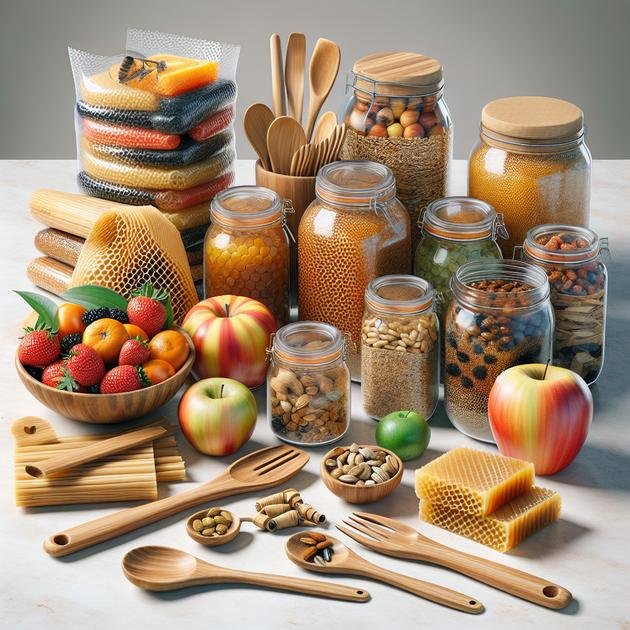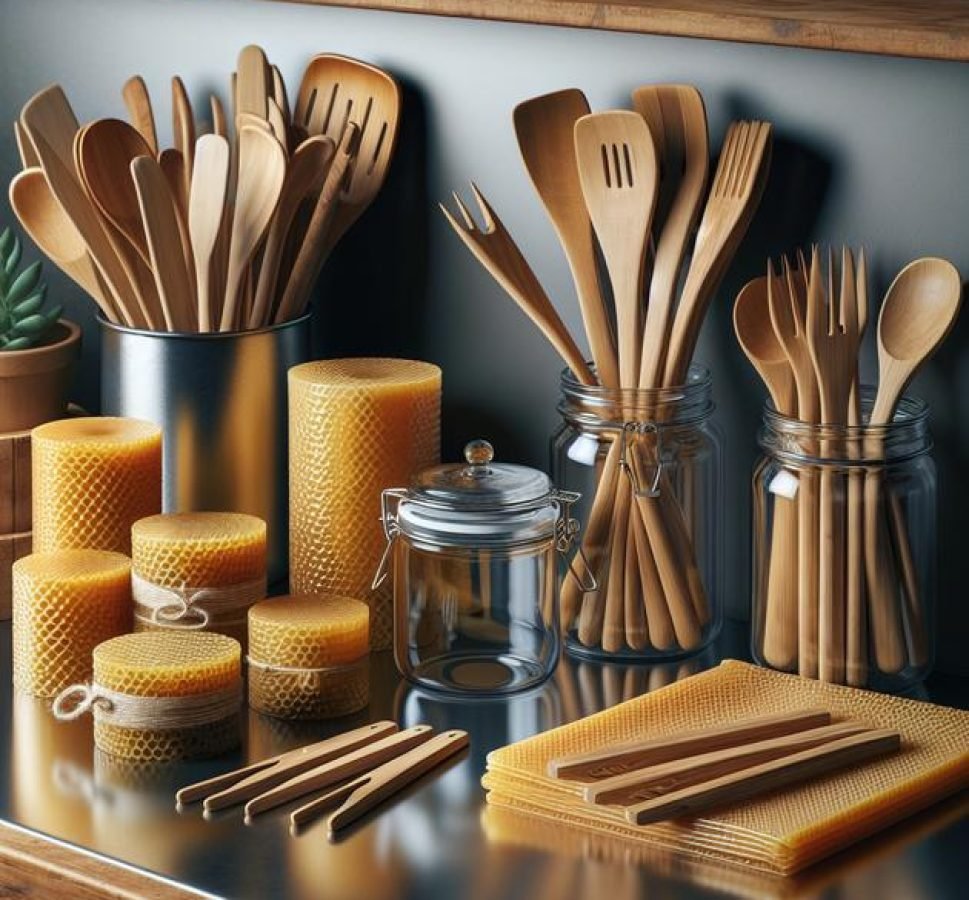Eco-friendly kitchen swaps help reduce waste and plastic by using reusable containers, sustainable utensils, home composting, plastic-free shopping bags, and smart storage solutions, making your kitchen greener and supporting sustainability while saving money and prolonging the freshness of your food.
Eco-friendly kitchen swaps might sound like a small step, but have you ever tried swapping your plastic wrap for beeswax wraps? That little shift can kickstart a wave of greener habits—one drawer at a time. Ready to see which everyday changes actually stick?
Reusable alternatives for common kitchen items
Switching to reusable alternatives for everyday kitchen items is a practical way to cut down on waste and promote sustainability. Instead of single-use paper towels, try cloth towels or microfiber cloths—they’re machine-washable and last for years. Replace disposable sponges with washable, biodegradable scrubbers made from natural fibers or silicone, which resist odors and mold. Look for beeswax wraps or silicone lids to keep food fresh, cutting out the need for plastic wrap.
Opt for refillable and long-lasting items
Glass food storage containers and stainless steel or bamboo straws are more durable and safer than their plastic counterparts. Even coffee lovers can join in by using reusable filter baskets or washable cloth coffee filters. Ditch single-use plastic bags for silicone food bags or fabric produce bags when shopping. Small changes like these help reduce plastic pollution, save money, and create a cleaner kitchen environment, one swap at a time.
Composting made easy at home

Home composting can turn everyday kitchen scraps into valuable soil for your plants and garden. Start by choosing a compost bin or pile that fits your space—there are compact options for apartments and larger bins for yards. Add fruit and vegetable peels, coffee grounds, eggshells, and shredded paper. Avoid adding meat, dairy, or oils to keep the compost healthy and odor-free. Layer green materials, like food scraps, with brown materials, like dry leaves or cardboard, for balance.
Keep compost moist and turn it regularly
This helps speed up decomposition and prevents bad smells. In a few months, your homemade compost will be ready to use in your garden, houseplants, or outdoor landscaping. Composting not only reduces landfill waste, it also helps create richer, more productive soil with less need for chemical fertilizers.
How to choose sustainable utensils and cookware
Choosing sustainable utensils and cookware starts with paying attention to the materials and how long the items will last. Swap out plastic spatulas and spoons for bamboo, wood, or stainless steel utensils—these options are sturdy and biodegradable or recyclable. Look for pots and pans made from cast iron, stainless steel, or ceramic, as these last for generations when cared for properly.
Consider durability and safety
Avoid nonstick coatings that may break down and release chemicals over time. Glass and stoneware are excellent choices for baking because they don’t absorb odors or flavors. Shop for products with minimal packaging and check for certifications like FSC (Forest Stewardship Council) or third-party eco-labels. Taking care of your tools by washing and storing them correctly will help them last even longer, reducing the need for replacements and saving resources over time.
Reducing plastic use in daily routines

Cutting down on plastic in your kitchen is easier when you focus on daily habits. Swap single-use plastic bags for reusable silicone or cloth bags that can be washed again and again. Choose glass or stainless steel containers instead of plastic for storing leftovers and lunch.
Say no to plastic wrap
Beeswax wraps and silicone lids seal food just as well, without the waste. Bring your own water bottle and coffee cup instead of relying on disposable options. When shopping, opt for loose produce and bulk items, using your own bags and jars. Avoid heavily packaged foods to further minimize plastic waste. Even switching to bar soap instead of plastic pump bottles helps reduce single-use plastics in the kitchen. These choices add up, making a big difference in your plastic footprint over time.
Tips for eco-smart shopping and storage
Shopping with the environment in mind starts before you even leave home. Make a list, focusing on local and seasonal produce to cut down on transport emissions. Choose reusable shopping bags and bring cloth produce bags to avoid plastic packaging. At the store, try buying in bulk and select items with minimal packaging.
Smart storage matters, too
Store your produce in glass jars, stainless steel, or silicone containers to limit food waste and keep ingredients fresh longer. Organize your pantry so older items are used first, and remember that proper storage can make your food last days or even weeks longer. Freezing leftovers and perishable foods in airtight containers is another way to reduce waste. Every time you shop and store food thoughtfully, you make choices that support both the planet and your budget.
Start your eco-friendly kitchen journey today
Small changes in your kitchen can have a big impact on the planet. By swapping out single-use items, composting scraps, choosing sustainable cookware, and reducing plastic, you’re making your home greener. Smart shopping and storage further help save resources and cut down on food waste. Every step, no matter how simple, brings you closer to a healthier kitchen and a cleaner world. Why not try one swap today and see where it leads?





